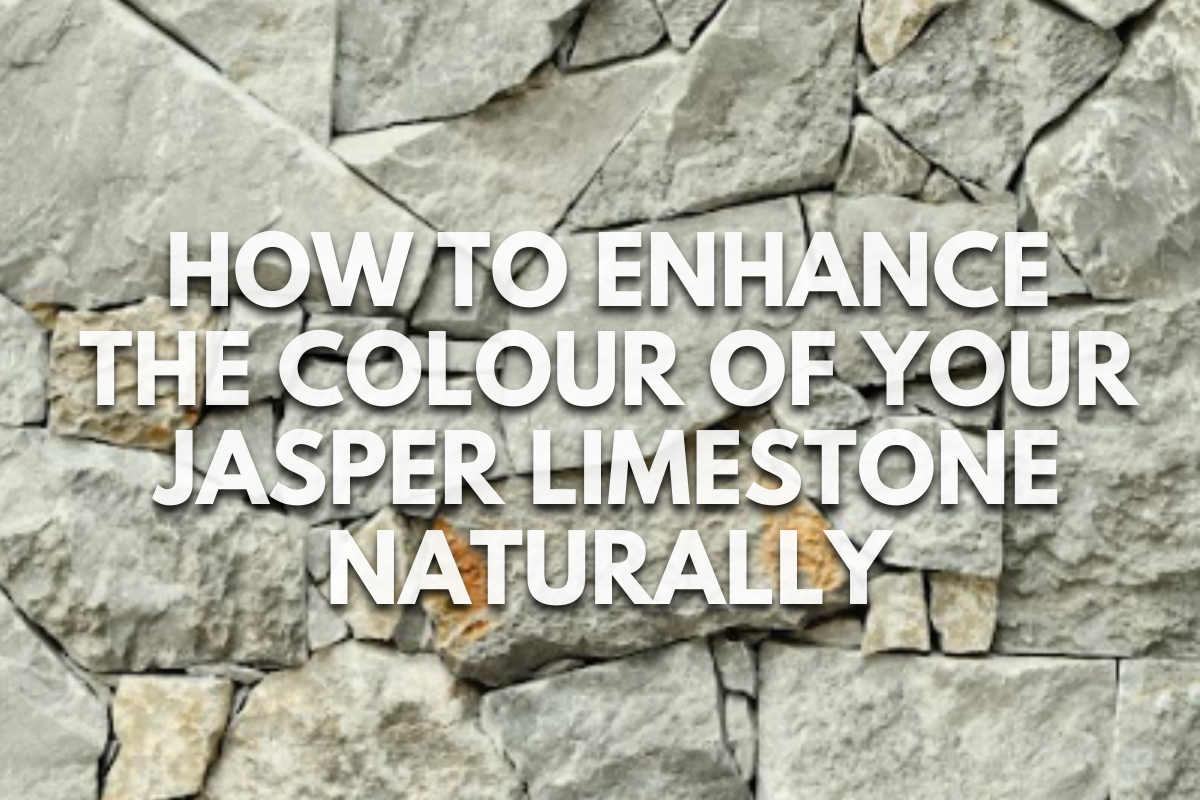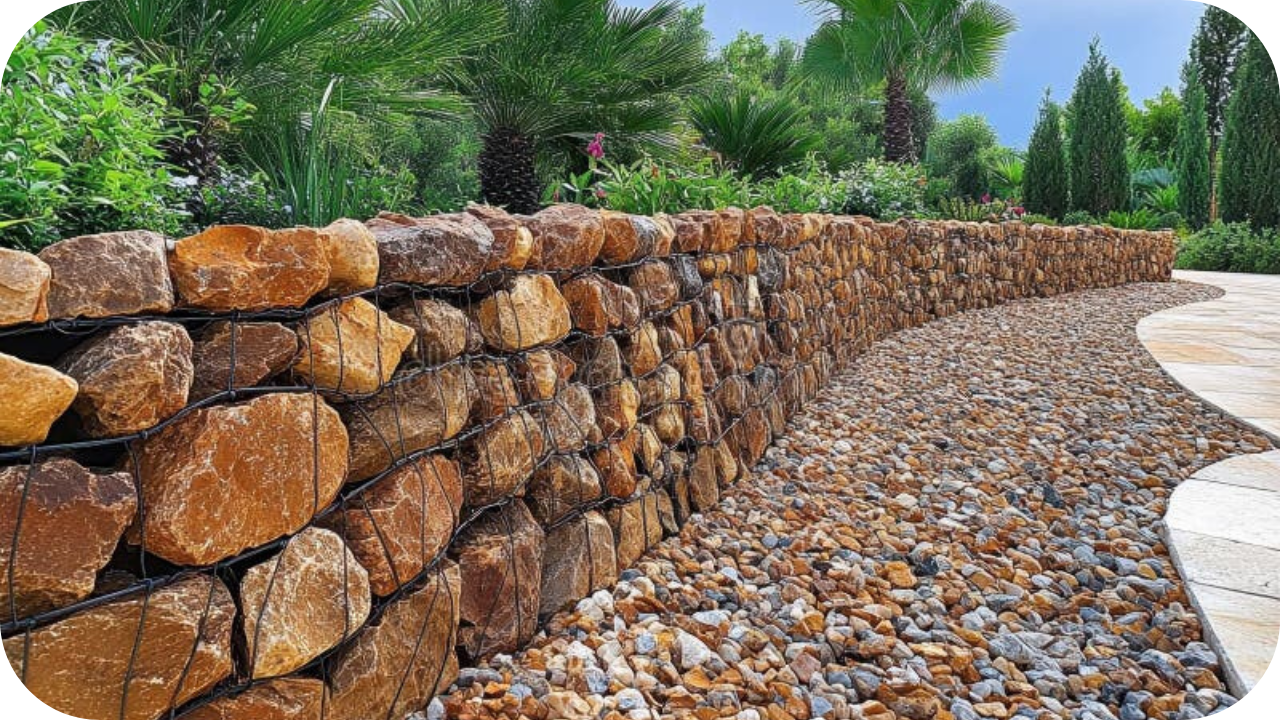
Are you frustrated with the dull appearance of your Jasper limestone?
Over time, exposure to elements can rob it of its vibrant colour, leaving it lackluster and unappealing.
Fortunately, there are natural methods to revitalize its hues and restore its beauty. In this article, we’ll explore effective techniques to enhance the color of your Jasper limestone, bringing back its natural brilliance without resorting to harsh chemicals or expensive treatments.
Understanding Jasper Limestone
Jasper limestone is a sedimentary rock renowned for its unique blend of colors and patterns, making it a popular choice for both interior and exterior applications.
Composed primarily of calcium carbonate, it features varying concentrations of iron oxides and organic matter, which contribute to its distinctive hues ranging from reds and browns to yellows and greens.
The presence of these minerals also influences the stone’s hardness and durability, making it suitable for a wide range of architectural and decorative purposes.
Geologically, jasper limestone forms through the accumulation and compaction of marine organisms, such as coral and shell fragments, over millions of years. This process, combined with subsequent pressure and mineralization, results in the characteristic layering and veining patterns seen in jasper limestone.
One of the key factors affecting the colour of jasper limestone is its exposure to environmental factors like sunlight, moisture, and atmospheric pollutants. Over time, these elements can cause the colours to fade or become muted, detracting from the stone’s natural beauty.
Importance of Natural Colour Jasper Limestone Enhancement
Preserving the natural color of jasper limestone is paramount for maintaining the aesthetic appeal and integrity of architectural and decorative installations.
Unlike artificial color enhancement methods, which may produce temporary or unnatural results, natural techniques ensure that the stone’s inherent beauty is accentuated without compromising its authenticity.
Enhancing the color of jasper limestone naturally not only revitalizes its appearance but also contributes to its longevity and durability. By utilizing non-invasive methods that work in harmony with the stone’s composition, you can avoid potential damage or deterioration caused by harsh chemicals or invasive procedures.
Furthermore, natural colour enhancement techniques align with sustainable practices, minimizing environmental impact and promoting eco-friendly alternatives to traditional stone treatments. This is especially important in today’s eco-conscious society, where consumers prioritize environmentally responsible choices in both design and construction projects.
Cleaning and Preparing the Jasper Limestone Surface
- Regular Cleaning: Keep the jasper limestone surface clean by regularly removing dirt, dust, and debris. Utilize a soft brush or cloth to prevent scratching the surface.
- Inspect for Damage: Periodically check the limestone for any signs of new chips, cracks, or deterioration. Promptly address any issues to prevent further damage.
- Sealing and Waterproofing: Consider applying a sealant or waterproofing product to protect the jasper limestone from moisture penetration, which can lead to damage over time. Follow the manufacturer’s instructions for proper application.
- Avoid Harsh Chemicals: When cleaning or maintaining the limestone, steer clear of harsh chemicals or abrasive cleaners that may harm the surface. Opt for mild, pH-neutral cleaners instead.
- Address Drainage Issues: Ensure adequate drainage around the jasper limestone to prevent water from pooling or seeping into the foundation. Promptly resolve any drainage problems to prevent water damage.
- Professional Inspection: Schedule periodic inspections of the jasper limestone by a professional to identify potential issues early and address them before they escalate.
Applying Natural Enhancers
Applying natural enhancers to sandstone walls can enhance their appearance and provide additional protection. Here’s what you need to know:
- Sealers: Natural sealers, such as linseed oil or tung oil, can penetrate the surface of the sandstone, providing protection against moisture and staining without altering its natural appearance.
- Enhancing Sealers: Some sealers are specifically formulated to enhance the natural color and texture of sandstone while providing protection. These sealers can deepen the color of the stone and highlight its natural features.
- Application: Follow the manufacturer’s instructions for applying natural enhancers to ensure proper coverage and penetration. Use a brush or roller to apply the sealer evenly, and allow it to dry thoroughly before exposing the wall to moisture.
- Maintenance: Periodically reapply natural enhancers to maintain the protection and appearance of the sandstone walls. The frequency of reapplication will depend on factors such as weather exposure and the porosity of the stone.
Rubbing Techniques for Intensifying Jasper Limestone Color
Rubbing techniques can intensify the color of jasper limestone, enhancing its natural beauty. Follow these steps for effective color intensification:
- Surface Preparation: Begin by cleaning the limestone surface to remove any dirt, dust, or debris. Use a mild detergent and water, and allow the surface to dry completely.
- Choose the Right Rubbing Agent: Select a rubbing agent that is suitable for limestone surfaces. Options include chalk, pumice stone, or fine-grit sandpaper.
- Test in a Small Area: Before proceeding, test the rubbing agent in a small, inconspicuous area to ensure it achieves the desired result without causing damage to the limestone.
- Rubbing Technique: Apply the rubbing agent to the limestone surface and gently rub in circular motions. Apply consistent pressure to gradually intensify the color of the limestone. Take care not to rub too vigorously, as this could damage the surface.
- Finish and Protect: Once you’ve achieved the desired color intensity, clean the surface again to remove any residue from the rubbing agent. Consider applying a sealant or protective coating to preserve the enhanced color and protect the limestone from future damage.
Sunlight Exposure for Jasper Limestone Natural Aging
Sunlight exposure plays a crucial role in the natural aging process of jasper limestone, influencing its color and texture over time. Here’s what you need to know:
- Color Changes: Direct sunlight exposure can cause jasper limestone to undergo color changes, typically becoming lighter or more vibrant over time. This natural aging process adds character and depth to the stone’s appearance.
- Texture Alterations: Sunlight exposure also affects the texture of jasper limestone, gradually smoothing rough surfaces and enhancing its natural patina. This can result in a more polished and refined appearance, enhancing the overall aesthetic appeal of the stone.
- Protection Considerations: While sunlight exposure is beneficial for the natural aging of jasper limestone, prolonged exposure to intense sunlight can cause fading or discoloration. Consider providing shading or using protective coatings to minimize the risk of damage and preserve the stone’s beauty.
Jasper Limestone Maintenance and Preservation Tips
Here are some tips to help you care for your jasper limestone:
- Regular Cleaning: Clean the surface of the jasper limestone regularly to remove dirt, dust, and debris. Use a mild detergent and water solution, and avoid harsh chemicals that could damage the stone.
- Avoid Abrasive Cleaners: Refrain from using abrasive cleaners or scrubbing brushes that could scratch or erode the surface of the limestone. Opt for gentle cleaning methods to preserve its natural beauty.
- Sealant Application: Consider applying a sealant to protect the jasper limestone from moisture, stains, and other environmental damage. Choose a sealant specifically formulated for limestone and follow the manufacturer’s instructions for application.
- Avoid Direct Sunlight: Minimize direct sunlight exposure to prevent fading or discoloration of the jasper limestone. Use shading or protective coverings to shield the stone from intense sunlight, especially in outdoor settings.
- Professional Inspection: Periodically have the jasper limestone inspected by a professional to identify any potential issues or damage. Prompt repairs and maintenance can prevent further deterioration and prolong the life of the stone.
Conclusion:
Harnessing natural methods to enhance the colour of your jasper limestone can yield stunning results. Embrace sunlight exposure and gentle rubbing techniques to bring out the stone’s natural beauty. Take action now to transform your jasper limestone into a captivating focal point for your space.
More To Explore

8 Advantages of Using Stone Grid Gabions in Your Landscape
Are you seeking a durable, cost-effective solution to elevate your landscape? Stone grid gabions might be the perfect choice! These versatile, eco-friendly structures offer a

10 Stunning Feature Wall Ideas Using Natural Stone
Looking to elevate your home with a stunning feature wall? Natural stone offers a timeless, elegant touch that can transform any room. From sleek marble


